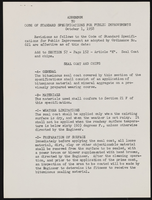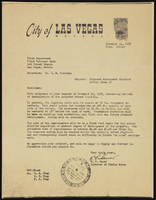Search the Special Collections and Archives Portal
Search Results
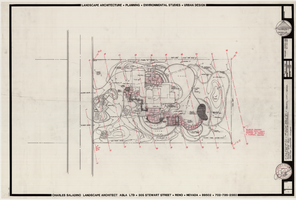
Dankworth residence, Sketch site plan, Revised landscape concept
Date
Archival Collection
Description
Image
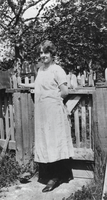
Alice Pratt Cirac Wilson, wife of "Bob" Wilson, in Tuolumne, California: photographic print
Date
Archival Collection
Description
From the Nye County, Nevada Photograph Collection (PH-00221) -- Series VII. Other areas in Nye County -- Subseries VII.I. Wilson Family (Toiyabe Mountains, Nevada)
Image
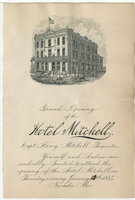
Grand opening of the Hotel Mitchell, invitation, Thursday, January 1, 1885
Date
Archival Collection
Description
Restaurant: Hotel Mitchell Location: Nevada, Missouri, United States
Text
John G. (Jack) Fogliani Photograph Collection
Identifier
Abstract
The John G. (Jack) Fogliani Photograph Collection is comprised of two black-and-white photographic reprints created between approximately 1971 and 2004 of the natural landscape of Eagle Valley, Nevada. The original photographs were taken between approximately 1900 and 1920.
Archival Collection
L. Paul Mercer Papers
Identifier
Abstract
The L. Paul Mercer Papers date from 1939-1970 and consist of personal correspondence, newspaper clippings, photographs, and textile samples dyed in the Native American tradition.
Archival Collection
Paul May Papers
Identifier
Abstract
The Paul May Papers (1963-1984) contain correspondence, reports and minutes from the Nevada Legislature, campaign materials, and invitations to various events.
Archival Collection

